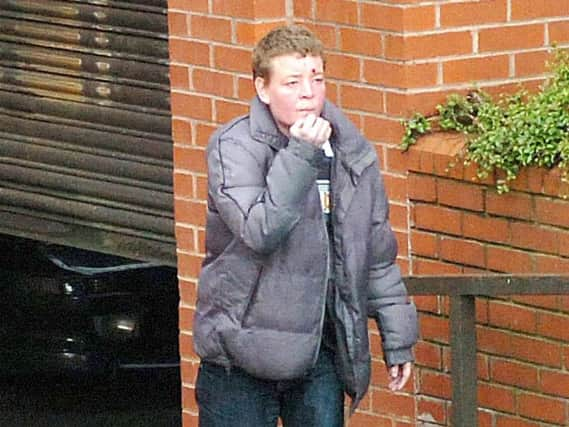Angela Wrightson murder case: Charity boss calls for changes in care system


Sir Peter Vardy, who set up volunteer organisation Safe Families for Children (SFFC), spoke after sentences were passed on the two teenage girls who killed the 39-year-old at her Hartlepool home.
He said: "The conviction of two teenage girls, aged just 13 and 14 at the time of their depraved crime, for the murder of Angela Wrightson is truly shocking.
Advertisement
Hide AdAdvertisement
Hide Ad"But what is unlikely to have been a surprise to many of those who read and heard the news of the trial outcome is that both the murderers and their victim had been in the care system.
"The two girls, now 15, sentenced to a minimum of 15 years for what was described as a “highly unusual and shocking” crime by Cleveland Police’s Det Chief Supt Peter McPhillips, were both in local authority care at the time of the murder.
"Miss Wrightson, meanwhile, an alcoholic whose family said in a statement had led a “troubled and at times chaotic lifestyle,” had also been brought up in care.
"While this case is clearly as extreme as Det Chief Supt McPhillips says, what is not unusual are the poor outcomes suffered by the majority of those whose childhood is spent in care.
Advertisement
Hide AdAdvertisement
Hide Ad"While no one is suggesting that time in care leads to the sort of aberrant violence carried out in the case of Miss Wrightson, what is clear is those youngsters who are in care or ‘looked after’ are less likely to do well throughout their childhood and into adulthood.
"Children in care are less likely to do well at school and are more likely to end up in prison.
"The trial of these two teenage girls has not only shocked us all, having been reported as far afield as Australia, but it has also highlighted the failings of our care system; a system which often only intervenes once a situation at home has reached breaking point.
"The statistics surrounding children in care are stark. When they leave primary school, only 43% will have reached expected educational levels, compared to 74% of all children; only 13% will leave school with five good GCSEs, 23% of the adult prison population has been in care and almost 40% of prisoners under the age of 21 were in care as children.
Advertisement
Hide AdAdvertisement
Hide Ad"It may well be that there was no other option for Child A and Child B as they were known during the trial; that it was impossible for them to remain at home.
"The court heard that Child A’s home life was volatile. Child B was said to have come from a more stable background, with her parents still together and her father in full-time work.
"Whether a difference could have been made somewhere down the line in this case is likely to be the subject of an inquiry.
"But in many other cases, where families are simply struggling to see a way through difficulties at home, the solution does not have to be adding to the numbers of ‘looked after’ children.
Advertisement
Hide AdAdvertisement
Hide Ad"It’s time we deal with troubled families in a different way, before this sort of social and moral breakdown occurs.
"The emphasis needs to be on early intervention. We need to step in right at the start of any issues which are faced by the family unit, providing tailored and targeted support to avoid the need for children to be taken into care.
"That’s why I founded Safe Families for Children UK after seeing first-hand the work Safe Families was doing in the US. The charity recruits volunteers to provide mentoring, respite and financial help.
"Backed by the Department for Education through the Children’s Social Care Innovation Programme, we have now helped 462 families with 1076 children, recruited 2152 volunteers and provided 914 bed nights for youngsters.
Advertisement
Hide AdAdvertisement
Hide Ad"Our volunteers tell us they aren’t doing anything they wouldn’t for a friend, while our families tell us their lives have been turned around. Parents who couldn’t see a way forward are now coping with family life and are providing a more stable and happier home for their children.
"Child A and Child B are set to become yet more numbers in those bleak care statistics and Miss Wrightson will now never have the opportunity to turn her own life around.
"But we can step in to help others. We’re aiming to reduce the number of looked after children by 10 per cent every year. We can help to prevent children from being needlessly taken into care, with all the poor outcomes that can lead to.
"We can’t expect Government to do and pay for everything. We need to rebuild a society where communities come together to help each other, as we all did not too many years ago."